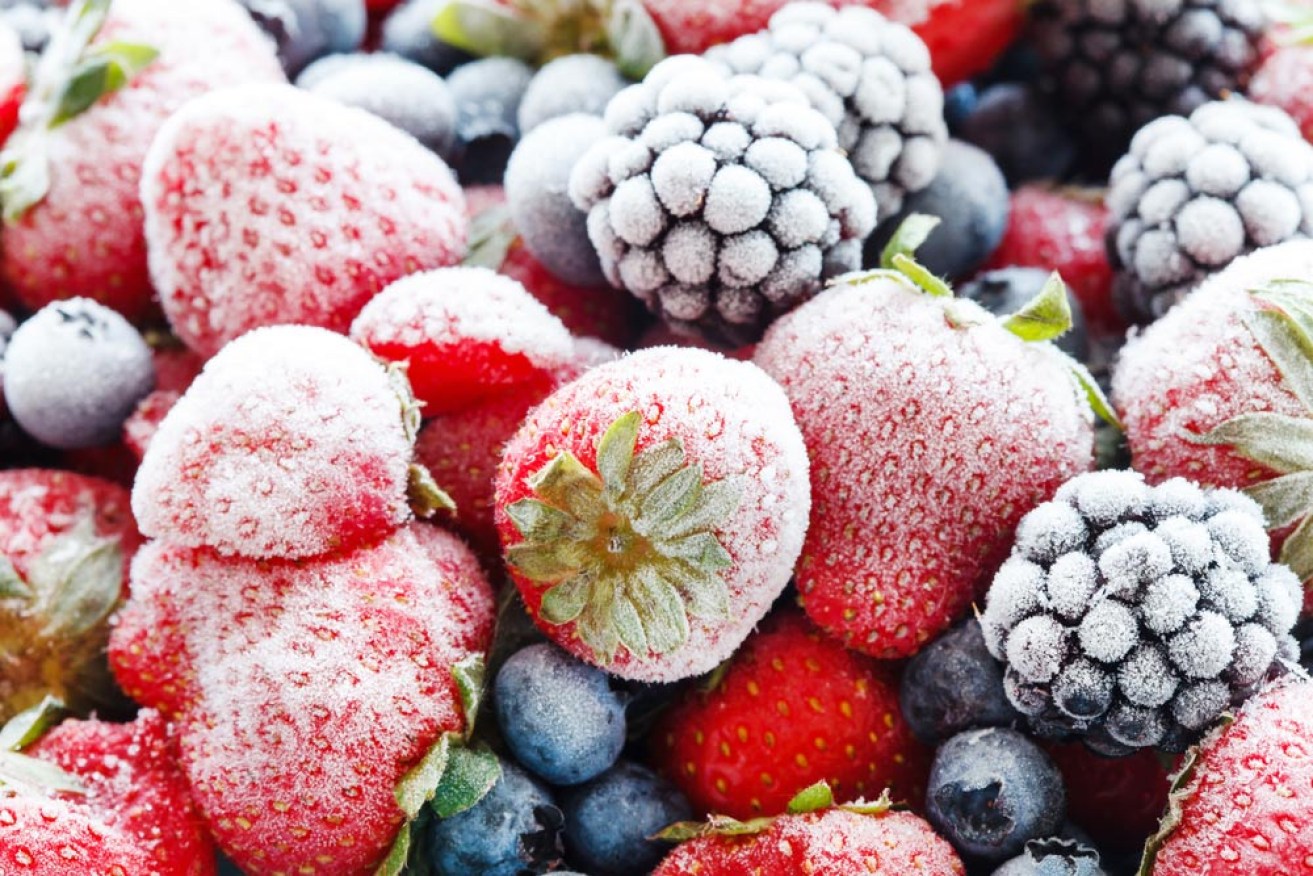Hep A outbreak linked to poor hygiene in China

Poor hygiene amongst Chinese workers as well as potentially contaminated water supplies in China are thought to be the likely causes of an outbreak of hepatitis A in Australia, linked to imported frozen berries.
Nine people — three in Victoria, four in Queensland and two in New South Wales — have become sick with hepatitis A after eating Nanna’s frozen mixed berries, prompting a national recall of the one-kilogram bag product.
On Sunday the recall was extended to Creative Gourmet mixed berries in 300 gram and 500 gram packets, because they were packaged in the same plant as the Nanna’s berries.
• Hepatitis A – click the owl for symptoms to watch out for
• More frozen berries recalled after Hep A scare

Nanna’s mixed berries have been withdrawn Australia-wide over links to Hepatitis A.
The berries, grown in China and Chile, had previously been repackaged by Patties Foods in Bairnsdale in regional Victoria.
In December, Patties Foods began accepting berry products that had been washed and packaged at the supplier’s factory in China’s Shandong province.
Dr Finn Romanes from Victoria’s Department of Health and Human Services confirmed the contamination had been traced back to China.
“The particular risk that we’ve identified here is that a country that has endemic hepatitis A, that is China, has been involved with packing these berries, sourced from both Chile and China,” Dr Romanes said.
“Clearly there’s strong evidence that there may have been a contamination during the packing process as they are fully sealed and then transported to Australia.”
Hepatitis A is a virus that attacks the liver, causing jaundice, nausea and vomiting for up to eight weeks.
According to the World Health Organisation, the disease is primarily spread when an uninfected or unvaccinated person ingests food or water contaminated with the faeces of an infected person.
“Unlike hepatitis B and C, hepatitis A infection does not cause chronic liver disease and is rarely fatal but it can cause debilitating symptoms and [acute liver failure] which is associated with high mortality,” WHO said on its website.
Acute liver failure is possible in elderly patients and rare in younger patients.
Two doses of the hepatitis A vaccine, administered six months apart, offer lifetime protection.
Patties Foods to cut ties with Chinese supplier
Patties Foods managing director Steven Chaur said officials were acting as quickly as they could to address the problem.
“It is obviously very concerning to us,” he said.
“I myself, and my family, consume the product so I am equally concerned as consumers are, because I have bags of Nanna’s and Creative Gourmet in my freezer.
“We will certainly be working with the supplier to undertake a full review of how this may have occurred.”
Mr Chaur said Patties Foods was likely to cut ties with its unnamed Chinese supplier.
It was not yet known what other food products the Chinese supplier produced for Australia.
More hepatitis A cases expected: NSW Health
Director of Communicable Diseases for NSW Health Dr Vicky Sheppeard said the number of cases was likely to rise.
“I expect we’ll probably get a lot more people in the coming days,” she said.
“Now that they’ve heard this, they might have already been getting sick, so they’ll go and get tested and will get the results in.
“That will give us a much better idea of the magnitude of the problem.”
Dr Sheppeard said the disease could be confirmed by a blood test and was highly infectious.
“If a person has infectious hepatitis A, they can readily spread it to others in the household,” she said.
“We’ll get quite a high attack rate once a person has it because the virus is replicating and they’ve got quite high levels of virus in their stools and in their urine so they could readily pass it on.”
People caring for children and older people were especially likely to infect others.
“They shouldn’t care for others if they’re symptomatic,” Dr Sheppeard said.
“To cut down the risk to others in the household, they’ve got to be really careful about washing their hands.”
Farmers urge consumers to ‘buy Australian’
The Victorian Farmers Federation (VFF) urged consumers to buy Australian-grown produce in the wake of the hepatitis A outbreak.
VFF’s Peter Toohey said stricter standards here ensured eating Australian-grown fruit was safe.
“We want to talk about the quality of Australian fruit and vegies — best in the world,” Mr Toohey said.
“Most regulated in the world, to make sure that they’re clean and healthy.
“Everything along the whole supply chain is checked off to make sure that we get really good, clean fruit. No contamination issues.”
People who have bought the berries are being advised not to eat them.
The fruit should be thrown out or returned to the place of purchase for a full refund.
The recall and refund details are being advertised in national newspapers today.
-ABC








